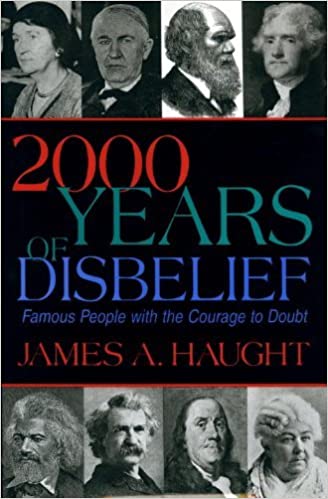This piece was reprinted by OpEd News with permission or license. It may not be reproduced in any form without permission or license from the source.
Whether you regard Napoleon Bonaparte as a brilliant hero (which he was) or an opportunistic egomaniac (which he also was), he remains a colossal figure in world history. He conquered most of Europe - until his lust for power brought him and a million Frenchmen to destruction.
Perhaps it's not surprising to learn that Napoleon was an agnostic during his years of triumph, but that as he neared death, broken by captivity, he uttered religious declarations.
Napoleon's rise began with the French Revolution, which was a rebellion against religion as well as against aristocratic greed. France's growing middle class came to disbelieve in the divine right of kings, and resented the parasitic luxury of the clergy and nobles. When the people's Assembly gained control in 1789, one of its first acts was to seize church property and order priests to swear loyalty to the new regime.
At that time, Napoleon was a young military officer who joined the radical Jacobin political club and made speeches against archbishops and aristocrats. After Jacobin zealotry produced the Reign of Terror, ending with the group's destruction, Napoleon was arrested briefly, but soon regained his army post.
When rioting royalists attempted to storm the National Convention in 1795, Napoleon ordered his troops to mow them down with grapeshot. Thus he saved the republic and became a public hero. Given ever-larger military commands, he began to win victories for France.
Cynically, Napoleon used religion for power. While leading a French army in Egypt, he half declared himself a Muslim and an enemy of the pope to gain support of Egyptian potentates. When the Egyptian campaign bogged down, he slipped back to France, conspired with military colleagues, and staged a 1799 coup that installed him as First Consul, a dictator. Soon, he reached an accommodation with the Catholic Church, to the chagrin of freethinkers who had fought the church in the revolution.
"Among the Turks, I was a Mohammedan; now I shall become a Catholic," Napoleon told aides. To seal the agreement with the Vatican, he attended an extravagant mass in Notre Dame cathedral - but told confidants he would not take the sacrament "or participate in all the rest of the hocus-pocus that makes a man ridiculous."
(Quoted by German historian Emil Ludwig in Napoleon (New York: Liveright Publishing Corp., 1926), pp. 120-21.)
Napoleon still defied the church. At his coronation as emperor in 1804, he seized the crown from the hands of Pope Pius VII and placed it upon his own head. Five years later, with Italy under French control, Napoleon demanded that Pius submit to his authority; but the pope replied by excommunicating the emperor. Napoleon laughed at the decree and told his lieutenants: "In these enlightened days, none but children and nursemaids are afraid of curses." He had Pius seized and imprisoned temporarily.
Napoleon had two wives and several mistresses. He lived with a dazzling flair, leading armies in mighty conquests, setting up surrogate kingdoms with his broth ers and sisters as rulers.
But Napoleon's self-aggrandizement eventually brought doom. He lost a half million troops in a futile attempt to conquer frozen Russia in the winter of 1812. Nations he had trampled united against him and forced him to abdicate in 1814. He was exiled to the Mediterranean island of Elba. But he escaped, returned to France, raised another army, and met final defeat at Waterloo. An exile once more, Napoleon was confined this time to the barren island of St. Helena, off the African coast, where he spent the final six years of his life.
Napoleon's views on religion:
"I would believe in a religion if it existed ever since the beginning of time, but when I consider Socrates, Plato, Mahomet, I no longer believe. All religions have been made by men." - to Gaspard Gourgaud at St. Helena, Jan. 28, 1817
"A soul? Give my watch to a savage and he will think it has a soul. ... If I have a soul, then pigs and dogs also have souls." - ibid., Dec. 17, 1817
(Note: You can view every article as one long page if you sign up as an Advocate Member, or higher).





